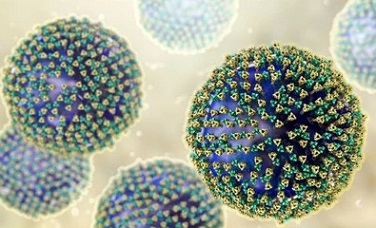BREAKING Medical News! Human-To-Human Transmission of Dabie Bandavirus That Causes SFTS Infections Confirmed In Japan!
Nikhil Prasad Fact checked by:Thailand Medical News Team Mar 25, 2024 1 year, 8 months, 3 weeks, 4 days, 18 hours, 19 minutes ago
Medical News: In an alarming development, the National Institute of Infectious Diseases (NIID) in Japan has confirmed the first instance of human-to-human transmission of the severe fever with thrombocytopenia syndrome (SFTS) virus. This virus, also known as the Dabie bandavirus, typically spreads through tick bites and has caused significant concern due to its potentially fatal consequences. This
Medical News report delves into the details of this recent confirmation, explores the characteristics of the SFTS virus, and discusses the implications for public health and medical professionals.
 Human-To-Human Transmission of Dabie Bandavirus That Causes
Human-To-Human Transmission of Dabie Bandavirus That Causes
SFTS Infections Confirmed In Japan
Human-to-Human Transmission Confirmed
The NIID's announcement revealed that a doctor in his 20s contracted the SFTS virus from a patient in his 90s who had been diagnosed with the infection. The doctor had provided medical care to the patient, including post-mortem procedures, without adequate eye protection. Subsequently, the doctor developed symptoms of SFTS, leading to the genetic analysis of both strains that confirmed identical sequences, indicating direct human-to-human transmission.
https://www.japantimes.co.jp/news/2024/03/20/japan/science-health/first-person-to-person-sfts-infection-japan/
https://news.cgtn.com/news/2024-03-24/Japan-confirms-1st-human-to-human-spread-of-tick-borne-viral-disease-1setcqmTo2Y/p.html
https://www.asahi.com/ajw/articles/15205734
Understanding the SFTS Virus
Origin and Spread
The Dabie bandavirus, or SFTS virus, belongs to the genus Bandavirus in the family Phenuiviridae. It was first identified in northeast and central China in 2009 and has since spread to Japan, South Korea, Vietnam, Taiwan,Thailand and other regions. The virus is primarily transmitted by ticks, with the ixodid tick species being a known carrier. Additionally, there have been reports of human-to-human transmission through contact with infected bodily fluids. Between 2019 and 2020, 3 cases of severe fever with thrombocytopenia syndrome (SFTS) were identified in Thailand.
https://pubmed.ncbi.nlm.nih.gov/36418010/
Numerous cases were identified in China and it is believed that his virus is rapidly evolving and mutating for better transmissibility and spread.
Clinical Presentation and Fatality Rate
SFTS infection can lead to severe fever, thrombocytopenia (low platelet count), leukopenia (low white blood cell count), vomiting, diarrhea, and multiple organ fai
lure. The fatality rate ranges from 12% to over 30% in certain areas, making it a significant public health concern.
Genetic Makeup
The SFTS virus has a sequenced genome consisting of three segments (L, M, and S) encoding various proteins essential for viral replication and pathogenesis. Five proteins have been identified, including an RNA-dependent RNA polymerase (RdRp), glycoproteins (Gn and Gc), a nuclear protein (NP), and a non-structural protein (NSs). Different genotypes of the virus have been identified, with varying distributions across affected regions.
https://www.nature.com/articles/s12276-021-00610-1
Public Health Implications
Increased Risk and Awareness
The confirmation of human-to-human transmission raises concerns about the virus's potential to evolve into an airborne pathogen, posing a greater risk to public health. Medical professionals and the general population must be vigilant and adhere to stringent infection control measures to prevent further spread.
Infection Control Measures
Japan’s NIID's response emphasizes the importance of thorough infection control practices, including the use of face shields to protect against blood splatter and the adoption of comprehensive personal protective equipment (PPE) protocols. Training and education on SFTS awareness and prevention are crucial for healthcare workers and communities.
Global Impact and Collaborative Efforts
Regional Spread and Surveillance
The SFTS virus's presence in multiple countries underscores the need for international collaboration in surveillance, research, and response efforts. Sharing data, best practices, and resources can enhance preparedness and facilitate a coordinated approach to managing emerging infectious diseases.
Research and Vaccine Development
Ongoing research on the SFTS virus, its transmission dynamics, and potential therapeutics is essential for developing effective treatments and preventive measures. Collaborative initiatives involving governments, academia, and pharmaceutical companies can accelerate vaccine development and improve outcomes for affected individuals.
Conclusion
The confirmation of human-to-human transmission of the SFTS virus in Japan is a significant development in the ongoing battle against tick-borne infectious diseases. It highlights the importance of robust surveillance systems, proactive public health measures, and international cooperation to address emerging health threats effectively. Continued research and investment in vaccine development and preparedness are crucial steps in safeguarding global health security.
For the latest
Medical News, keep on logging to Thailand Medical News
